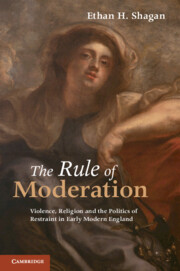Prologue
Published online by Cambridge University Press: 05 June 2012
Summary
First she tasted the porridge of the great, huge bear, and that was too hot for her; and she said a bad word about that. And then she tasted the porridge of the middle bear, and that was too cold for her; and she said a bad word about that too. And then she went to the porridge of the little, small, wee bear, and tasted that; and that was neither too hot nor too cold, but just right; and she liked it so well she ate it all up: but the naughty old woman said a bad word about the little porridge pot, because it did not hold enough for her.
Robert Southey, ‘The Three Bears’There was no Goldilocks in the earliest written versions of the tale, only an ‘impudent, bad old woman’. In the 1837 version by Robert Southey, the old woman's invasion of the three bears’ domestic tranquility was narrated as a cautionary tale of moderation versus excess. The ‘good natured and hospitable’ bears were the very image of civilised moderation. Each bear had only what he (significantly, they were all male) needed: ‘Each a chair to sit in; a little chair for the little, small, wee bear, and a middle-sized chair for the middle bear, and a great chair for the great, huge bear.’ In proper control of their bodily appetites, they ‘walked out into the wood while the porridge was cooling, that they might not burn their mouths by beginning to eat it too soon’. In keeping with their modest condition, they ate their porridge with wooden spoons. The old woman, by contrast, was an avatar of excess, a greedy and foulmouthed beggar rather than the innocent child of later interpretations. When she located the porridge that was ‘neither too hot nor too cold, but just right’, instead of appreciating its moderation she gobbled it up and cursed it because the pot ‘did not hold enough for her’. When she located the chair that was ‘neither too hard nor too soft, but just right’, she sat down until ‘the bottom of the chair came out, and down came hers, plump upon the ground. And the naughty old woman said a wicked word about that too.’ And it was lucky the bears used wooden spoons, for ‘if they had been silver ones, the naughty old woman would have put them in her pocket’. At the end of the tale, then, the old woman reaped the fruits of her immoderation, a process described as the purgation of ‘ugly, dirty’ matter by ‘good, tidy bears’: having lazily fallen asleep, she was forced by the return of the bears to hurl herself out of a second-floor window, ‘and whether she broke her neck in the fall, or ran into the wood and was lost there, or found her way out of the wood and was taken up by the constable and sent to the house of correction for a vagrant as she was, I can not tell’.
- Type
- Chapter
- Information
- The Rule of ModerationViolence, Religion and the Politics of Restraint in Early Modern England, pp. 1 - 4Publisher: Cambridge University PressPrint publication year: 2011

